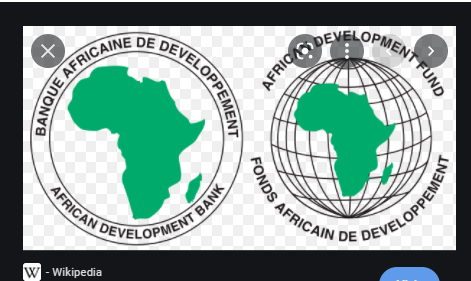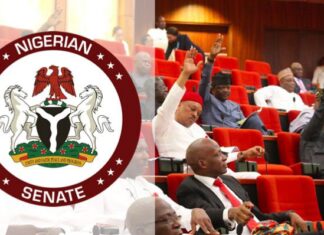By Jeph Ajobaju, Chief Copy Editor
African countries have been saved $4 billion in the past three years through the African Legal Support Facility (ALSF) the African Development Bank (AfDB) created to help stave off losses from business deals.
AfDB said in a document that countries have urged it to extend support to tackling illicit financial flows as experts and business leaders have expressed confidence that ALSF is well-placed to advance Africa’s asset recovery and repatriation.
“The African Legal Support Facility has already established its place as what might be called a front-line fighter to secure for Africa its resources.
“The Facility must assist African countries to negotiate fair and balanced contracts to eliminate opportunities for illicit receipt, use, or transfer of funds,” said Thabo Mbeki, former South African President and current chair of the African Union’s high-level panel on illicit financial flows, per The PUNCH.
AfDB President Akinwumi Adesina added that “the bleeding of Africa’s natural resources, weak regulations and limited capacity for review and negotiations have shortchanged many African countries, especially low-income countries, including transition and fragile states.”
Since its establishment in 2008, ALSF has provided expert legal advice and technical assistance to African countries in negotiating complex commercial transactions, including creditor litigation.
AfDB approves recourse mechanism for victims of bank-financed operations
AfDB board of directors has approved a new policy framework for the Independent Recourse Mechanism (IRM) through which individuals or communities can raise concerns about projects financed by banks.
They can also seek redress and hold a bank to account to comply with its policies and procedures on sustainability.
The PUNCH quotes the News Agency of Nigeria (NAN) as reporting that the policy aims to strengthen accountability and provide effective recourse for those affected by operations financed by banks.
AfDB disclosed that the policy framework is the result of internal and public stakeholder consultations that began in December 2019 as part of IRM review.
AfDB Director of Compliance Review and Mediation Unit David Simpson said the new policy is a significant step forward for the IRM.
“The new policy framework restructures the complaints’ mechanism, to make it more accessible, efficient and predictable.
“It also simplifies the complaint process for users of the Independent Recourse Mechanism, while enhancing its transparency, and providing clearer guidelines for case management,” he stressed.
Stephanie Amoako, Senior Policy Associate at Accountability Counsel, an international civil society organisation, added that “the new accountability policy, if properly implemented, better serves the needs of communities across Africa.
“This is by removing barriers to access the IRM and creating a more equitable process for those using the mechanism.”
A new name accompanies the new policy as the Independent Review Mechanism will now be known as the Independent Recourse Mechanism.
The new mechanism has been restructured, replacing the previous external experts panel model with a fully integrated unit that will now lead all problem-solving and compliance review functions.
Operational guidelines
The new policy
- Strengthens accessibility for complainants by allowing complaints to be filed by a single person.
- Enables the mechanism to advise communities on how to submit complaints if needed.
- Adopts a zero-tolerance standard for retaliation against complainants and rejects any form of threats.
- Rejects intimidation, harassment, violence, or discrimination towards those who raise concerns through IRM.
- Requires AfDB management to make IRM better known among affected communities by disclosing information about the mechanism at a project level.
New operational rules and procedures approved by AfDB board empower IRM with authority to
- Initiate compliance review processes in certain circumstances without a formal complaint from affected communities.
- Increase complainants’ participation in the complaint-handling process by giving them the opportunity to comment on draft compliance review reports before they go to the board.
- Pursue a culturally appropriate and gender-sensitive complaint process.
- Consider a complaint’s eligibility even in the case of parallel judicial or non-judicial proceedings.
- Make recommendations to AfDB on issues related to redress and remedy.
AfDB’s complaint mechanism became operational in 2006 and has received over 100 complaints submitted by civil society organisations and affected communities.
IRM covers both public and private sector operations of the AfDB Group.











